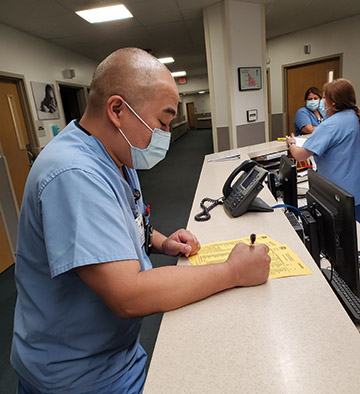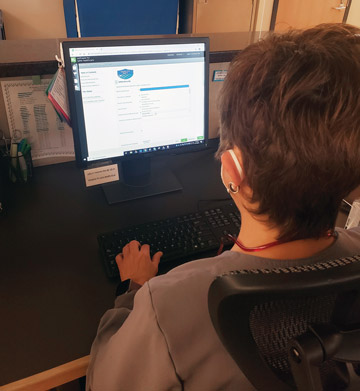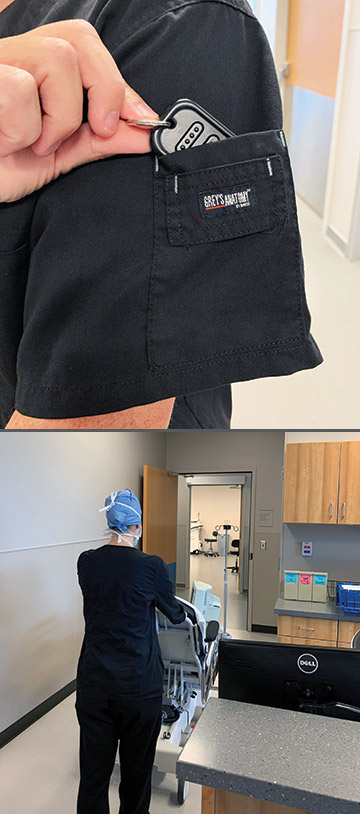The pandemic has everyone on edge and patients’ frustration levels have understandably reached an all-time high. Dealing with a highly agitated patient can be scary — especially during the height of COVID-19 — and is something many healthcare workers don’t know how to properly handle. Offering training and solutions for incidents like this is something The Oregon Clinic Gastroenterology East at Gateway in Portland does not take lightly, and is one of the many reasons the facility is the winner of the 2020 OR Excellence Award for Employee Safety.
“We’ve called the local sheriff’s department to get pointers on how to deal with difficult patients,” says Wendy Wellott, RN, an endoscopy nurse who is also the facility’s safety and infection coordinator. “It’s hard to stay calm when someone is being irrational.”
The clinic has a backup system called Dr. Strong, which is an alert button installed in the reception area. If a patient or a visitor is agitated and staff doesn’t feel comfortable, they press the button to alert the center’s security officer. The computers at the front desk are equipped with Skype, so staff can easily log on and message someone if they need help.
.svg?sfvrsn=be606e78_3)




.svg?sfvrsn=56b2f850_5)